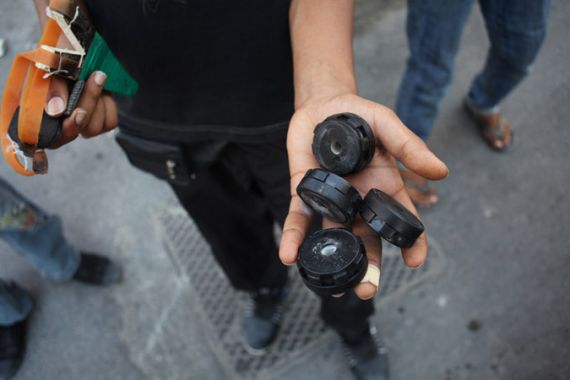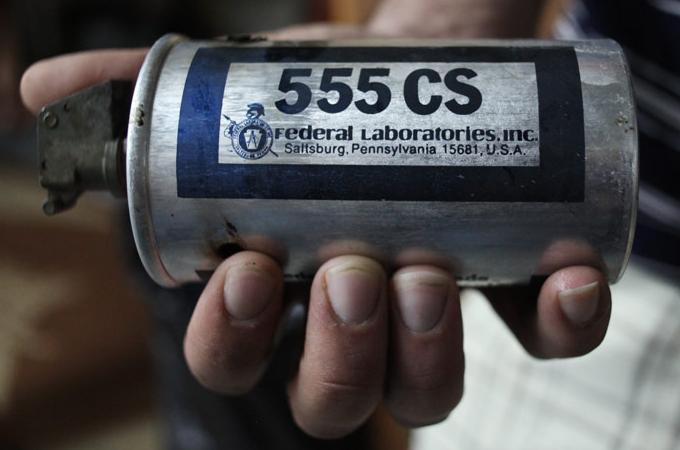US politicians seek to halt Bahrain arms deal
Concerned about the kingdom’s response to a popular uprising, members of Congress aim to bloc a $53m sale.

 |
| The US already exported millions of dollars worth of guns, teargas, and other arms to Bahrain [Matthew Cassel] |
US members of Congress, concerned about the Bahraini government’s response to a popular uprising, introduced a rare measure that would halt a $53m arms sale to the Gulf Arab state.
US Senator Ron Wyden of Oregon and US Representative James McGovern of Massachusetts, both Democrats, said they introduced resolutions in both houses of Congress on Friday to prevent the sale of US weapons to Bahrain “until meaningful steps are taken to improve human rights” there.
“Selling weapons to a regime that is violently suppressing peaceful civil dissent and violating human rights is antithetical to our foreign policy goals and the principle of basic rights for all that the US has worked hard to promote,” Wyden said in a statement posted on his website.
“The US should not reward a regime that actively suppresses its people. This resolution will withhold the sale of arms to Bahrain until the ruling family shows a real commitment to human rights,” Wyden said.
The Pentagon last month notified Congress that it had approved the sale of $53m of weapons to Bahrain, including more than 44 armored vehicles and 300 missiles, 50 of which have bunker busting capability.
Prime contractors for the arms sale would be AM General and Raytheon Co, according to the Defence Security Co-operation Agency, the part of the Pentagon that oversees foreign arms sales.
The notice of the sale was officially reported to Congress on September 14, triggering a 30-day period during which Congress can pass a resolution opposing the sale.
Members of Congress seldom challenge arms sales notifications since weapons sales are generally vetted with Congress before being made public.
In the wake of the so-called “Arab spring,” which swept the governments of Egypt, Tunisia and Libya from power, Bahrain’s Shia majority turned up the political heat in the island country, which put down a pro-democracy uprising earlier this year with the help of neighboring Saudi Arabia.
Many Shia areas are witnessing almost nightly clashes with police. Opposition groups say heavy-handed police tactics are worsening tension on the street.
Hundreds of Shia were dismissed from their jobs over suspected roles in the protests and many remain in police detention.
About 30 people, mainly Shia, died when the protest movement erupted in February, but ongoing clashes and deaths in police custody have taken the total past 40, according to the Bahrain Center for Human Rights (BCHR).
McGovern said it was not in the United States’ national security interest to sell weapons to Bahrain.
“Human rights ought to matter in our foreign and military policy,” he said. “Now is not the time to sell weapons to Bahrain.”